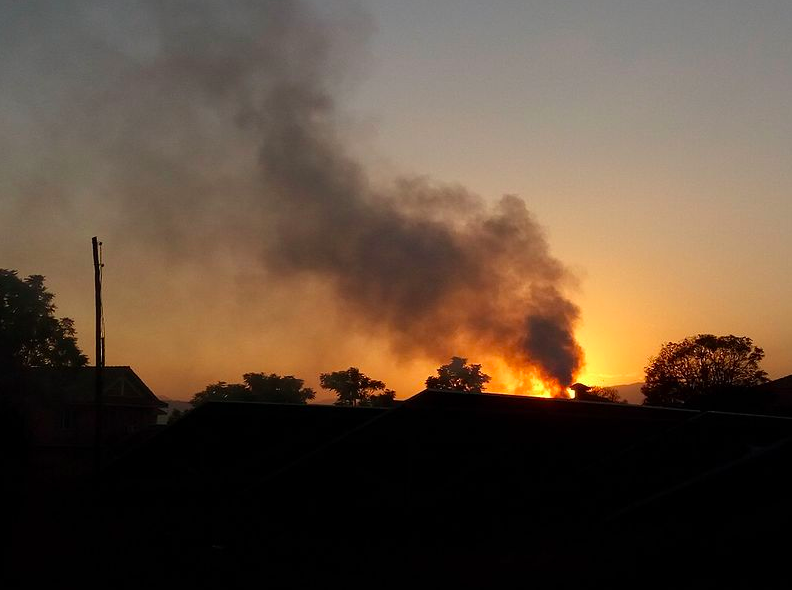The notion of Lawrence H. Summers, whereby production that emits an excess quantity of pollution should be done in countries specializing in pollution-intensive industries, highlights a severe collective action problem that is yet to be solved by the international community. With the height of globalization, the implications of the global political economy on the environment and climate change has been at the center of debate for many years. This failure of the international community in curtailing the dire effects globalization has on the environment can be seen in the creation of pollution havens. Pollution havens, locations where industries specialize in the production of dirty goods, commonly exist in developing countries that are looking for an easy route into industrialization. Although the Pollution Haven Hypothesis, the notion that production relocates from countries with strict environmental policies to those with weak regulations, has been proved by many scholars, solutions to this collective action problem remain largely unexplored. As the frantic need for foreign direct investments (FDI) and corrupt domestic bureaucratic institutions lead to the lowering of stringent environmental regulations, possible solutions lie in the prevention of these exogenous and endogenous causes through the introduction of capital controls and institutional capacity building. Yet, the most successful solution can be found in the creation of a common bargaining platform, such as regionalized tribunals, in which developing countries can maintain a legitimate stance against the exploitation of their environment through setting collective environmental standards.
Prior to exploring solutions to pollution havens, the theories of how and why they arise must be explored. Being dumping grounds where environmental regulations are weak, pollution havens enable foreign actors to pollute without the costs of externalities at home. This shows that lax regulations attract the production of dirty goods. As a consequence of globalization, the transborder movement of industries has resulted in the movement of production lines by developed countries to avoid high environmental costs. Accordingly, pollution havens ultimately result in the marginal social costs of production to be greater than its marginal social benefits. Comparative advantage specializing in dirty industries, heavy outsourcing, bureaucratic vulnerability and more are amongst the many determinants of pollution havens. Despite this, the two primary determinants of pollution havens that encompass these various causes, are the attraction of FDI and corruption in the countries specializing in dirty industries.
The twentieth century has witnessed the growth of large international firms, which has altered the global production system into a process that involves numerous actors from different tiers of the economy. These transnational corporations (TNCs) have contributed to 50% of world trade in recent decades. Pollution havens are created when the governments of nations, who are often seeking capital for development, relax stringent environmental regulations in hopes to attract FDI. This is often done by Thailand, and many countries in South East Asia, Africa, and Latin America. By making investments and transferring production, developed nations are able to produce at a lower cost while off sourcing their environmental responsibilities. It is this form of eco-imperialism that creates pollution havens.
Behind the deregulation of environmental policies lies corruption as sufficient political institutions are either weakened or tampered with by officials to attract investments. Pollution havens are strategically created in this manner, in hopes of acquiring capital to utilize for economic growth. Bias and corruption within national governments lead to profit-seeking behavior, decreasing environmental policies. This can also occur in the private sector as countries with high corruptibility are commonly dictated by the elites through the privatization of industries. If a country is heavily dependent on tax on capital, attracting FDI is a simple way to increase revenue. The corruptibility levels of countries also determine whether they accept bribes from developed nations seeking to produce without paying the high environmental costs of their own countries. This is often the situation for countries who possess and can exercise immense power in capital markets by directing investments. Therefore, conventional capital and corruption controls are not enough, such as strengthening environmental laws.
A strong expression of regionalism, whereby developing countries jointly pursue capital controls and anti-corruption policies as negotiators, is the most practical way in which the emergence of pollution havens can be curtailed. The North-South conflict arises when there is a mismatch of power and resources between developed and developing countries. Third world solidarity through regionalism would break this mismatch of power by giving developing countries a distinctive voice. It should be noted that the suggestion for regionalism does not refer to regional trade agreements, but a multilateral tribunal across developing regions to collectively partake in investment negotiations and anti-corruption policies. This solidarity between the countries in the South is especially important as it would shift the balance of power between North-South negotiations when it comes to FDI. Yet, there is a lack of development due to the absence of compensation received by countries in the South. If policymakers amongst similar nations unit by presenting a common front regarding stringent environmental regulations and monetary compensation for infrastructural capacity building, a certain degree of legitimacy would be present to hold the North accountable. An alternative means by which developing countries can achieve their economic goals without the need to deliberately soften their environmental regulations would be developed through such tribunals. It should be noted that the South must not be overly concentrated on national economic development, where development occurs at the cost of environmental degradation through lax regulations. This would hinder the possibility of a common bargaining platform, as different national interests would clash with each other. This is seen in how third world solidarity decreased after the financial crises in the 1980s, focusing more on national interests. The presence of a collective front, based on regions, is crucial for ceasing the creation of pollution havens so that long-term benefits of development can be sustained, without the deterioration of the environment. Some solidarity has between the South has occurred, for instance when developing countries came together in the United Nations General Assembly in the 1950s, demanding the reduction of the inequality gaps between the North and the South. The North-South divide was further highlighted in the declaration of a New International Economic Order in 1974, however, its creation failed as Western states refused to take the demands of the South seriously. Here, it is seen that the attempt to present a united front within already established organizations would be inefficient as the voting decision-making processes of these organizations favor the North. There is already a dominant position of Western states in these organizations that would be difficult to challenge. Therefore, a coalition outside the already established system that would serve the purposes of the South could potentially lead to the reduction of pollution havens as the rules would be set by developing countries.
Once a multilateral tribunal amongst developing countries has been created regionally, the participating countries can set standards regarding FDI controls and anti-corruption policies. Perhaps a standard environment tax can be set according to levels of FDI, consultations can be made in the creation of anti-corruption policies that are best fitted to attack the lack of accountability for that specific region, and so on. The tribunal can also be used to perform regional investigations domestically to ensure that standards are being met from within developing countries. This is important as the bureaucracy must be willing to cooperate and implement such provisions in order for the tribunal to maintain its legitimacy. Compliance would be the trickiest part in establishing a regional tribunal as often, there are different interests, sovereignty concerns, historical conflicts, and cultural factors within regions that must be overcome. For instance, Bangladesh, India, Pakistan, and Sri Lanka have the ability to create a secure regional tribunal if these states are willing to overlook their religious and historical bitterness. The fact that compliance is unlikely due to the genesis of these countries is not enough to stand up to the power blocs of the North. Creating a new regionalized system where countries from the South can establish standards, despite their traditional differences, would give them an upper hand when negotiating with the North to an extent where environmental regulations do not have to be lowered to obtain investments. A systemic approach would be the foundation on which politicians can ensure environmental regulations are met while receiving the FDI for economic development.
Disclaimer: Any views or opinions expressed in articles are solely those of the authors and do not necessarily represent the views of the NATO Association of Canada.
Featured Picture: An evening in Nepal – Air Pollution (November 8 2016), by Sishir Panthi via Wikimedia. Licensed under Public Domain/Wikimedia Commons.




